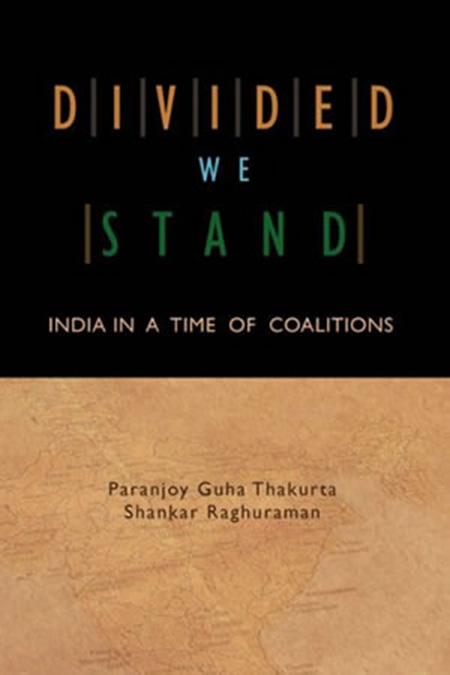In the excitement of the elections and a new Prime Minister assuming power, a most unusual battle between two of the biggest companies in the country all but escaped the attention of large sections of the media.
The biggest corporate entity in the public sector, the Oil and Natural Gas Corporation (ONGC) has in a court of law accused the biggest private sector company, Reliance Industries Limited (RIL), of pilfering 18 billion cubic metres of natural gas worth as much as `30,000 crore since 2009.
That’s not all there is to this sensational story. ONGC, a company largely owned by the Government of India, has accused the government itself — namely, the ministry of petroleum and natural gas as well as its regulatory and technical wing, the directorate general of hydrocarbons (DGH) — of virtually turning a blind eye to its complaints of theft against RIL. The private sector company, headed by India’s richest man Mukesh D. Ambani, has refuted the allegations.
What makes the entire episode even more murky is that days before he demitted office, the outgoing Union minister of petroleum and natural gas, M. Veerappa Moily, wrote to the seniormost bureaucrat in the ministry, secretary Saurabh Chandra, claiming that ONGC had “mishandled” the case by moving a petition before the Delhi high court without seeking their prior permission. This, according to former minister Moily, was an “extreme” and “drastic” step. He further claimed that the actions of a relatively junior bureaucrat who was in the ministry had caused “embarrassment” to the government.
RIL issued a statement saying it was “saddened” by a statement made by the ONGC’s chairman and managing director (CMD), Dinesh K. Sarraf, to the effect that the public sector company had sued RIL to protect its commercial interests. He had told the Press Trust of India on May 20: “The matter (of RIL allegedly drawing gas from ONGC blocks) was brought to the notice of our board (in March). The board was of the view that we need to protect our commercial interest at all costs. If that requires any legal recourse, we will take that.”
RIL claimed that “some elements in ONGC” were “misleading the new CMD, Mr Sarraf, in order to hide their own failure to develop discoveries made over the last 13 years in these blocks”.
Interestingly, Mr Moily had earlier suggested that Mr Sarraf’s predecessor, Sudhir Vasudeva, be given an extension of his term as CMD of ONGC which got over in February. But Mr Moily’s move was over-ruled by former Prime Minister Manmohan Singh. An extension of Mr Vasudeva’s term had been opposed by Nirmala Sitharaman, former spokesperson of the Bharatiya Janata Party who is now minister of state for commerce and industry, and Gurudas Dasgupta, former MP belonging to the Communist Party of India, on the ground that there were vigilance cases pending against him.
On May 15, a day before the election results were declared, ONGC formally petitioned the court accusing RIL of stealing gas from blocks adjoining those where RIL is contracted to operate in the Krishna-Godavari basin. Almost a year ago, in July 2013, ONGC had first apprised the petroleum ministry about its allegations. In September, there were meetings between officials of RIL and ONGC, and in November data was exchanged. On February 11, 2014, after RIL asked ONGC for more data, the public sector company wrote to its administrative ministry asking for a “neutral expert” to be appointed to ascertain whether RIL was indeed stealing gas from ONGC’s wells which adjoin each other.
ONGC’s director, exploration, Narendra K. Verma stated that the data provided by RIL had been analysed, that ONGC was confident that two adjoining blocks had the same “pool” and that based on international practices, gas from the pool should be apportioned between the two companies. “It appears that (the) endeavours of ONGC to come to a common ground with RIL are now failing and also considerable time has elapsed since DGH directed RIL on August 28, 2013, to share the data with ONGC,” Mr Verma stated in his February 11 letter to the then joint secretary, exploration, in the ministry, Giridhar Aramane. Mr Verma’s letter also called for intervention by the DGH in this dispute since the regulator was mandated under the production-sharing contract to handle situations wherein adjoining gas blocks shared a common reservoir.
RIL stated that in spite of ONGC filing a petition, the process to appoint a neutral expert was still on. RIL’s statement noted: “Since then, as per international practice, ONGC and RIL have been engaged in the process of appointing an independent agency to investigate the issue of possible reservoir connectivity across the blocks. The two had met on May 9, 2014, and exchanged drafts regarding the scope of work to be assigned to such agency. On May 23, the parties again met and finalised the enquiry notice to be sent to four agreed international expert agencies. It was decided to issue the enquiry notice on May 26, 2014. Since the process for appointing this agency as per international practice was already well underway it is indeed unfortunate that some elements in ONGC forced invocation of the Delhi high court at this juncture.”
On May 22, while demitting office as petroleum minister, Mr Moily wrote to secretary Saurabh Chandra expressing his disapproval with ONGC filing a petition against its main shareholder, alleging “omission and commission” on the part of the ministry and the DGH. He wrote that the next minister should be briefed on taking charge so that accountability could be fixed for “mishandling the matter and allowing (it) to escalate to this level”. Mr Moily said that before taking such a “drastic step”, ONGC should have intimated the ministry of its intention to file a petition in court. He specifically pilloried Mr Aramane for “this extreme and embarrassing situation for the government” and wondered why the bureaucrat — who was a member of the management committee for the blocks being operated on by both RIL and ONGC and the ministry’s representative on the board of directors of ONGC — had not tried to “resolve the dispute”. Mr Aramane has since been transferred as principal secretary to Andhra Pradesh.
The Delhi high court will resume hearings on this unique dispute on August 12.


